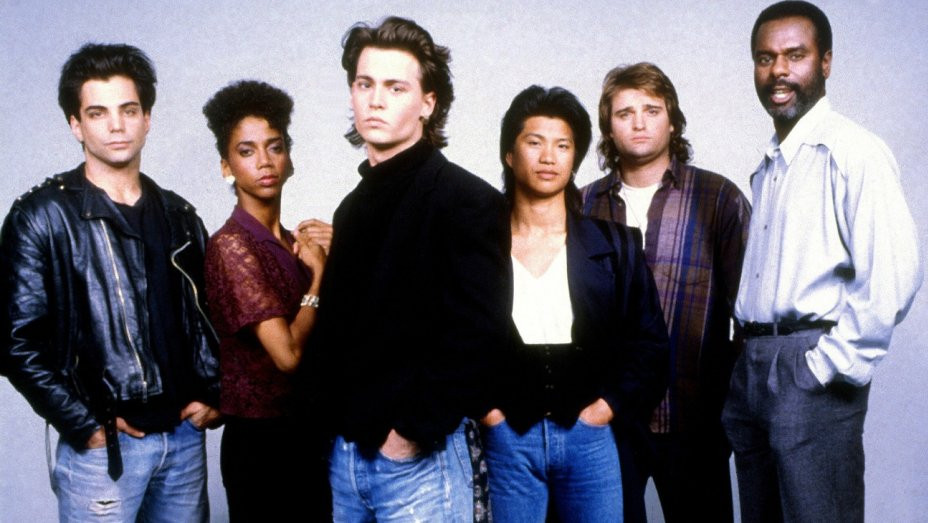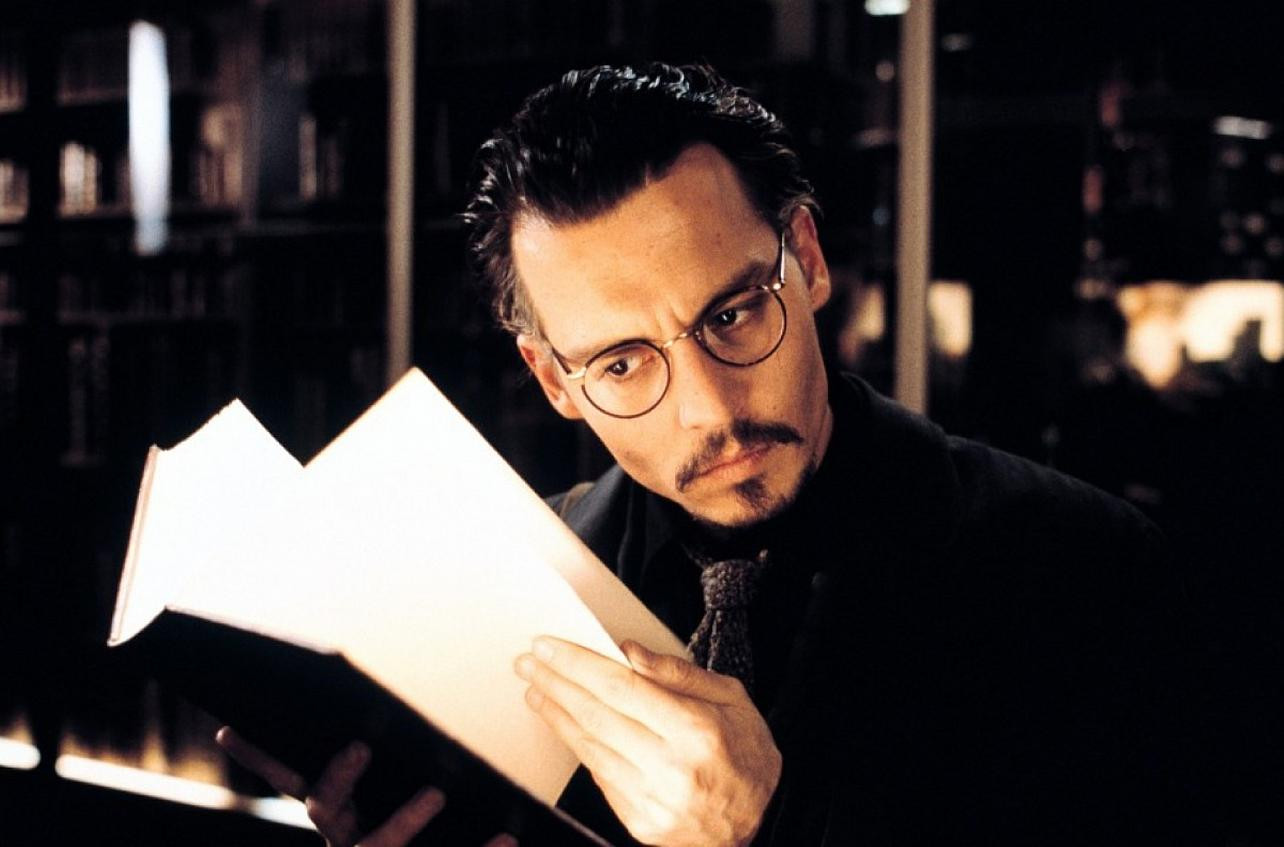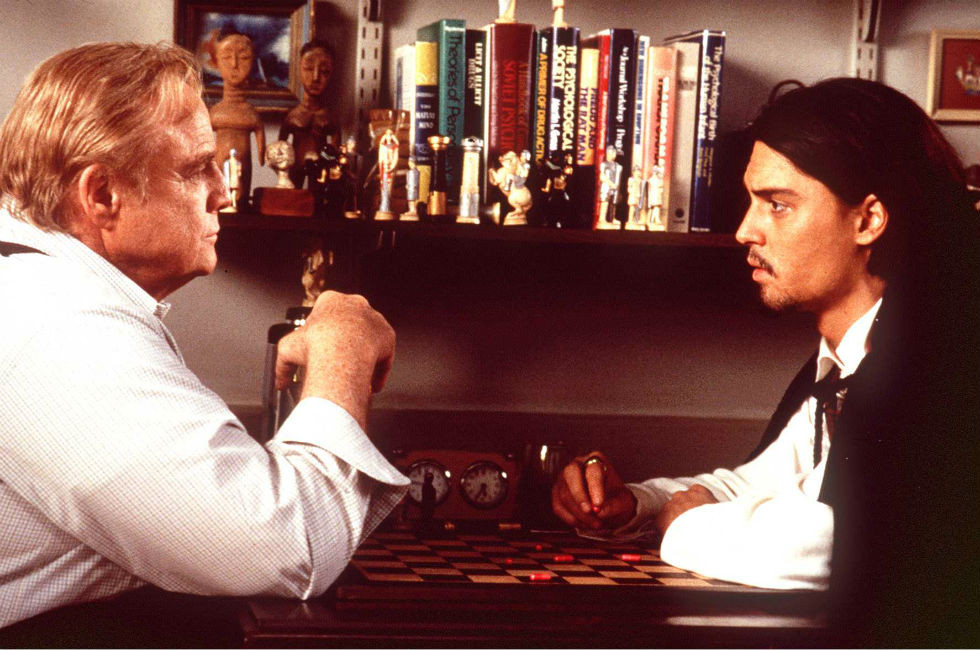From his breakout role in 21 Jump Street that captivated teenage audiences to his later eccentric characters on the big screen, Johnny Depp has long held a fascinating position in pop culture. For many, including the writer of the original article in Rolling Stone, Depp has been the most compelling actor of his generation. However, his journey from a fresh-faced young star in 21 Jump Street to the headlines detailing financial woes and personal controversies paints a stark picture of a career at a crossroads. This transformation invites a deeper look into how fame, starting from the intense spotlight of a teen drama like 21 Jump Street, can shape and perhaps distort an individual’s path.
Rolling Stone‘s recent profile on Johnny Depp unveiled a troubling narrative of immense financial losses, legal battles, and personal struggles. The article detailed a fortune squandered, lawsuits against former managers, and allegations of spousal abuse, painting a picture of an actor adrift. Adding to this, reports emerged of Depp struggling to remember lines on set, relying on earpieces to feed him dialogue. While these details are captivating in their own right, the broader story arc is even more compelling. It illustrates a dramatic fall from grace, a far cry from the days when Johnny Depp was a heartthrob sensation on 21 Jump Street, celebrated for his talent and charisma. Now, he is portrayed as isolated, facing bankruptcy, and teetering on the edge of industry blacklisting.
The term “isolated” perfectly encapsulates the image of Johnny Depp presented in the Rolling Stone piece. The article depicts a man surrounded by people on his payroll, yet profoundly alone within his own world. This isolation, juxtaposed against the backdrop of his early fame on 21 Jump Street, raises questions about the nature of celebrity and the pressures of maintaining a public image crafted in the crucible of teen idol worship.

Alt text: Johnny Depp in a candid moment, reflecting his current public image amidst personal challenges.
The parallel between Depp’s career stages and life seasons resonates deeply, as the original author notes. For those who grew up watching him, from his 21 Jump Street days to his unconventional film choices, his journey mirrors personal timelines. During the 1990s, while many were in film school, Depp was pushing boundaries with his roles, becoming an icon for his unique taste in projects. Even as the author grew weary of blockbuster franchises, Depp became the face of one of the last truly enjoyable ones, Pirates of the Caribbean. This enduring connection, tracing back to the very beginning of Depp’s career with 21 Jump Street, underscores the long-term impact of his early work and public persona.
From Teen Heartthrob to Hollywood Icon: 21 Jump Street’s Launch of Johnny Depp
While Johnny Depp’s film debut was in A Nightmare on Elm Street, it was 21 Jump Street (1987–1990) that catapulted him into mainstream stardom. For anyone in junior high during the late 80s, 21 Jump Street was more than just a TV show; it was a cultural phenomenon. It was the epitome of cool, a series that resonated with a generation navigating the complexities of adolescence. Decades later, the premise of 21 Jump Street remains remarkably clever: young-looking police officers going undercover in high schools to tackle issues from drug abuse to hate crimes.
The brilliance of 21 Jump Street lay in its innovative blend of genres. It successfully merged the procedural elements of police dramas like Hill Street Blues with the emotional depth of teen melodramas like Fame. 21 Jump Street didn’t shy away from addressing serious social issues relevant to teenagers, including drug use, AIDS awareness, hate crimes, and teenage prostitution. The unique perspective of adult protagonists posing as teenagers allowed for a nuanced exploration of these sensitive topics, sparking crucial conversations among young viewers.

Alt text: The young cast of 21 Jump Street, including Johnny Depp, showcasing the show’s teen appeal in the late 1980s.
The original 21 Jump Street‘s soundtrack, integral to its identity, is unfortunately absent from current DVD releases due to licensing issues. This loss is significant, as the music was a defining element of the show’s atmosphere. However, this unavailability also creates a unique kind of value, preserving the series as a memory of a specific era, impossible to fully recapture. Just as one cannot truly revisit the past, the original 21 Jump Street exists now only in fragments of memory, enhanced by nostalgia.
Considering the current trend of reboots, a 21 Jump Street revival could be surprisingly relevant today, addressing contemporary issues like cyberbullying, school shootings, and online radicalization. While the comedic film adaptations were entertaining, an earnest remake could tap into the original series’ insightful approach to social issues. However, any 21 Jump Street revival would face the challenge of replicating the original’s casting magic.
The stars of 21 Jump Street, especially Johnny Depp, became teen idols, plastered across magazines like Bop. Depp, however, famously resisted this teen idol label, actively seeking roles that defied this image. Despite his discomfort with the trappings of teen stardom, Depp’s charisma was undeniable. Even in later seasons of 21 Jump Street, where he sometimes appeared disinterested, his inherent magnetism outshone the performances of his co-stars. From the very beginning of 21 Jump Street, it was clear: Johnny Depp possessed true star quality, a quality that would propel him far beyond the confines of teen television.
Beyond Jump Street: Carving a Unique Path
After 21 Jump Street, Johnny Depp consciously moved away from the teen heartthrob mold, making bold choices that prioritized artistic expression over conventional leading roles. He embraced roles that often de-emphasized his looks, highlighting his versatility and willingness to explore unconventional characters. From the whimsical Edward Scissorhands (1990) to the eccentric Ed Wood (1994) and the intensely immersive Fear and Loathing in Las Vegas (1998), Depp consistently challenged audience expectations.
Depp’s affinity for the supernatural genre, a genre also beloved by the original article’s author, became another defining aspect of his career. His portrayal of Ichabod Crane in Tim Burton’s Sleepy Hollow (1999) showcased his perfect blend of comedic timing and emotional depth. Similarly, his role as a morally ambiguous rare book dealer in Roman Polanski’s The Ninth Gate (1999) further solidified his reputation for taking on complex and intriguing characters within supernatural narratives.

Alt text: Johnny Depp as Dean Corso in The Ninth Gate, portraying a rare book expert entangled in an occult mystery.
Then came Captain Jack Sparrow in Pirates of the Caribbean (2003). If 21 Jump Street introduced Johnny Depp to the public, Pirates of the Caribbean transformed him into a global phenomenon. Despite his efforts to avoid mainstream typecasting, he achieved superstardom on his own terms. His portrayal of Jack Sparrow was groundbreaking, described by the Pirates screenwriters as both exactly what they envisioned and completely unexpected.
Captain Jack Sparrow became an iconic cinematic figure, comparable to Bela Lugosi’s Dracula or Christopher Reeve’s Superman. It was a perfect synergy of actor and character, elevating Depp beyond mere celebrity to a figure of modern folklore.

Alt text: Johnny Depp as Captain Jack Sparrow, a character that cemented his status as a global superstar after his 21 Jump Street fame.
However, the immense success of Jack Sparrow might have inadvertently pushed Depp to continually escalate the eccentricity in his subsequent roles. While his performances remained captivating, there was a sense of diminishing returns as he layered on more flamboyant quirks, perhaps most evident in films like Charlie and the Chocolate Factory, Alice in Wonderland, and The Lone Ranger. He returned to the role of Jack Sparrow repeatedly, a testament to its popularity, but it also risked overshadowing the breadth of his earlier, more varied work established after 21 Jump Street.
The Shadow of Fame: From Jump Street to Isolation
The narrative of a celebrated figure’s downfall is a recurring theme in American culture, and Johnny Depp’s trajectory seems to fit this pattern. Following his peak box-office success, unflattering media narratives emerged, detailing extravagant spending and increasingly erratic behavior. The charm once associated with his quirky persona began to morph into alarm, as behaviors deemed endearing in his youth seemed troubling with age. Depp, who admired Marlon Brando, appeared to be mirroring Brando’s later years in ways that were less than ideal.

Alt text: Marlon Brando and Johnny Depp in Don Juan DeMarco, a film that perhaps foreshadowed Depp’s career trajectory in parallel with Brando’s.
Marlon Brando, while never completely ostracized by Hollywood, became increasingly known for his eccentricities and reclusive nature. Personalities tend to amplify, not diminish, with age. The comparison to Elvis Presley’s final days, as mentioned in the Rolling Stone article, further emphasizes this trajectory. Each generation seems to have its archetype of the self-destructive, brilliant star, and for Gen X, figures like Charlie Sheen and Johnny Depp embody this. The contrast is stark: Johnny Depp rose from the platform of 21 Jump Street to global fame, only to seemingly descend into personal and professional turmoil.
This recurring archetype of the “mad genius” retreating into isolation, seen in both Brando and Depp, serves a cultural purpose. It allows for a form of vicarious living and judgment from afar. It’s not schadenfreude alone, but a complex interplay of fascination and moral distancing. The author’s empathy for Depp’s current situation stems not just from being a fan, but from a deeper recognition of shared human tendencies towards withdrawal.
Finding Connection Beyond the Bubble
In 2014, the author of the original article stepped away from a screenwriting career, seeking a different path in novel writing. This transition involved a deliberate withdrawal from social circles and Hollywood events, a self-imposed semi-exile. The intensive process of writing a novel further reinforced this isolation, leading to a life increasingly confined to home and office, with limited social interaction beyond close family and friends.

Alt text: Johnny Depp in Secret Window, depicting a writer’s life of isolation, a theme resonating with the article’s author.
However, recent experiences have pulled the author out of this cocoon. Engagements with the publishing world and research for a new novel have necessitated travel and interaction with diverse individuals. Furthermore, increased involvement in charitable organizations has fostered connections with people passionate about meaningful causes. These experiences have revealed a surprising openness and warmth in human interactions, a stark contrast to the isolation of a self-imposed bubble.
This newfound congeniality isn’t just about physical presence; it’s about social engagement. Re-entering “meet-and-greet mode” has projected an openness that has been reciprocated, highlighting the human desire for connection, often obscured in the digital age. Social media, while offering connection, can also foster a sense of detachment from real-world interactions. The importance of maintaining genuine human connections becomes increasingly clear.
Reading about Johnny Depp’s isolation, the author recognized a universal tendency towards creating personal bubbles. While Depp’s withdrawal is extreme, it reflects a broader human capacity for reclusiveness. It’s easy to judge Depp’s “gilded cage” isolation, but many engage in their own forms of retreat, whether through VR, binge-watching, or social media, distancing themselves from the complexities of the real world.
Solitude is essential for creativity and reflection, but habitual seclusion becomes an abdication of social responsibility. In our digital age, solitude is harder to achieve, while seclusion becomes increasingly easy. Figures like Johnny Depp, with their exaggerated isolation, can inadvertently normalize our own tendencies towards detachment. His extreme example can make our own isolation seem acceptable, even reasonable.
Johnny Depp’s career, from the early days of 21 Jump Street to his current status, reflects a journey of self-determination, culminating in a chosen, albeit perhaps undesirable, isolation. The irony is potent: having resisted typecasting throughout his career, Depp now finds himself typecast as the reclusive celebrity, an archetype that, perhaps uncomfortably, mirrors aspects of contemporary society. For someone who has followed his career since 21 Jump Street, it’s a role, both for Depp and in reflection for ourselves, that is worth reconsidering and moving away from.
